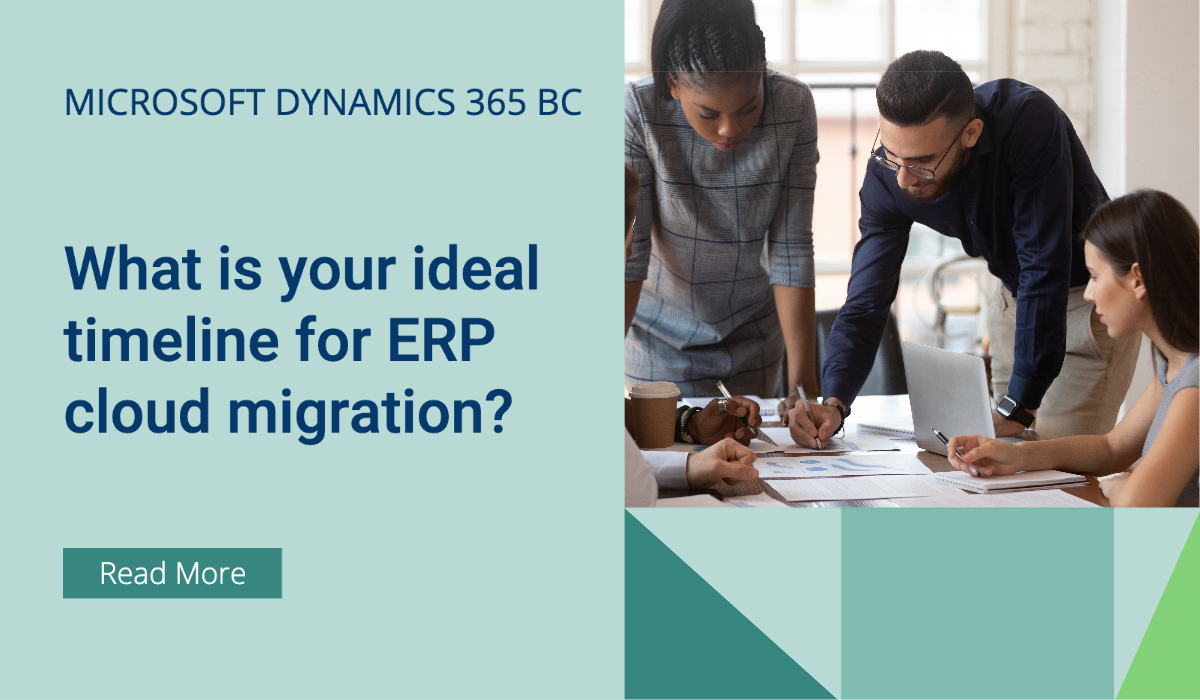
What is your ideal timeline for ERP cloud migration?
If the global IT trends and developments in recent years have made one thing clear, it is that the future of business software is in the cloud.
Strongly stimulated by all the effects of the COVID pandemic, ERP vendors are currently doing everything they can to strengthen and further improve their cloud solutions. That’s the place to look for the latest innovations. Meanwhile, they’re keeping their traditional on-premise solutions up and running –while they also try to convince their existing customers of the usefulness and necessity of cloud migration.
How long can you afford to miss out on the added value of cloud innovations? And what is the right moment for your organisation to migrate?
As a business society, we’ve really embraced cloud computing over the past 2 years. Working from the home office never would have been possible without cloud technology, and a lot of organisations learned this the hard way. This is the same for online education, online healthcare and many examples from other domains and industries.
IT vendors were forced to switch to a Cloud First strategy faster than they might have planned. The good thing is that the cloud is where ERP and CRM vendors spend their R&D budgets these days. And that will, of course, be at the expense of previously planned innovation in their traditional on-premise solutions.
Staying with your current on-premise solution for (too) long means that you will isolate yourself from where the real innovation is happening. What does it mean for your position if your competitors are already taking that step – and are able to service their customers better, faster and cheaper?
Looking at your long-term IT strategy, the question should no longer be whether you migrate to the cloud, but rather when you do so.
And if you have to take that step anyway, what are the advantages of postponing it even longer?
Here are a few valuable considerations for defining your ideal timeline:
- Understand that implementation is never convenient for your organisation – even if you postpone it for another year (or two)!
- You can anticipate an initially slight, but then increasing urge from your vendor to switch. Think of the limitations in possibilities for your current solution and increasing costs for support.
- Consider the availability of the right resources from your implementation partner. Are these resources available for you at the time you are ready? What if you have to queue because everyone else has waited until the last minute, too?
- The availability of knowledge around the outdated version of your existing on-premise solution may be reduced.
If you can’t yet migrate to the cloud for legal or technical reasons, then at least decide to upgrade to the most recent on-premise version. In this way, you are assured of the best possible support in any case.
Would you like more information about cloud-based ERP solutions? Get in touch.
February 8, 2023
RECENT POSTS
When Does Business Central Need Power BI?
At a Glance Power BI for Business Central is Microsoft’s business intelligence (BI) tool that connects to Dynamics 365 Business Central and turns ERP data into interactive dashboards, charts, and reports. It helps teams move [...]
Why Business Central Upgrades Matter More Than Ever in 2026
At a Glance Microsoft Dynamics 365 Business Central requires regular minor and significant upgrades to remain secure, compliant, and fully functional. In 2026, making these upgrades is critical to access performance improvements, automation, regulatory updates, [...]
Do I Need Add-Ons for Business Central?
At a Glance Business Central add-ons extend the ERP’s standard functionality to address gaps such as advanced reporting, compliance, warehousing, and automation. They are deployed as secure extensions that integrate with core Business Central, remain [...]


